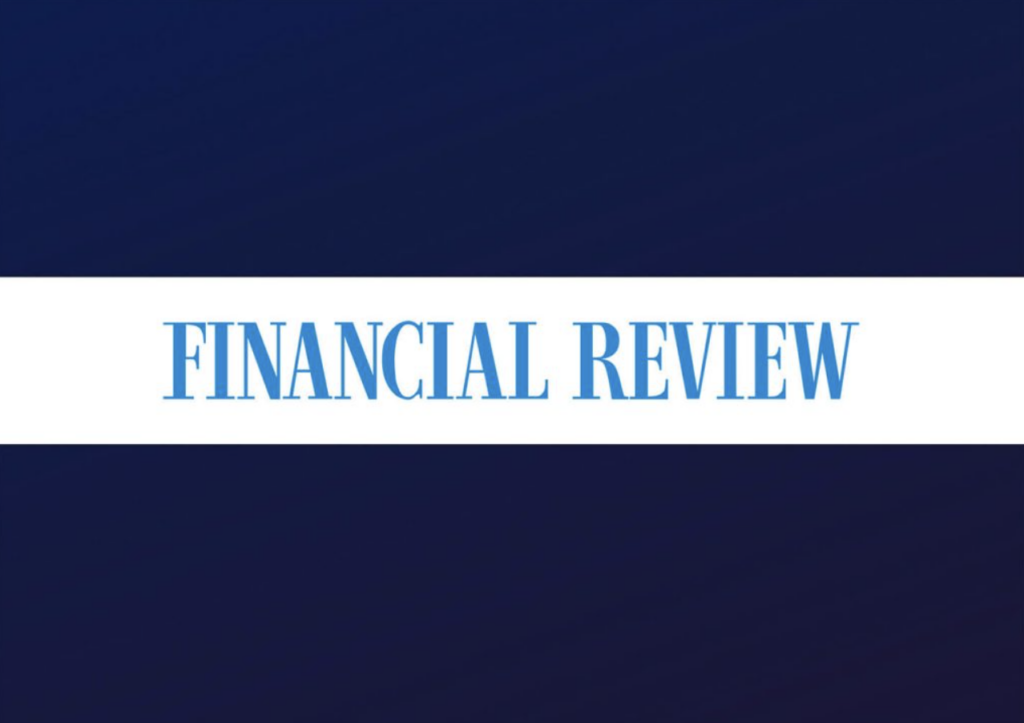

Article courtesy of the Australian Financial Review.
Mavericks on top of the Business People of the Year list
This year’s list reflects a world in which Australia’s biggest companies took a cautious approach to investing and deal-making in an uncertain economic environment.
The choice of Gina Rinehart as The Australian Financial Review’s 2023 Business Person of the Year duly recognises a lifetime of independent business success and achievement.
Her famous father, Lang Hancock, who pioneered the opening up of Western Australia’s Pilbara and Australia’s great iron ore export trade with Japan in the 1950s and 1960s, was named as one of the seven entrepreneurs and corporate leaders who most shaped modern Australian business over the previous seven decades when the Financial Review celebrated its 70th anniversary in 2022.
Yet the father never made the leap from prospecting and staking out iron ore claims to mining the stuff. This year’s record shipment from the Roy Hill iron ore mine established by the daughter underpinned the $5 billion profit of the once-bankrupt company Mrs Rinehart inherited, and has entrenched her No. 1 position on the Financial Review’s Rich List for the fourth year running.
With its $38 billion of assets beyond iron ore and across multiple interests in mining, energy and agribusiness industries, Mrs Rinehart has built her Hancock Prospecting empire into by far the nation’s biggest private company.
The annual AFR Business Persons of the Year list recognises Australia’s top leaders, builders, pioneers and stirrers. Mrs Rinehart – who is an earthy political standout with her own views in an ESG social licence-constrained corporate world – fits all these criteria.
Her eclectic dealmaking and investment profile in the past 12 months span a hard-fought battle to win control of WA gas developer Warrego Energy; a kingmaker role in Australia’s new critical minerals boom that blocked the takeovers of lithium miners Azure Minerals and Liontown Resources; buying iconic Aussie bush outfitters Driza-Bone; and her well-progressed plans to become Australia’s biggest truffle farmer to help sate the growing local and overseas appetite for gourmet foods.
The Business Person of the Year awards are often dominated by the top echelons of blue-chip corporate Australia. As Chanticleer columnist James Thomson writes, this year’s list reflects a world in which Australia’s biggest companies took a cautious approach to investing and deal-making in the uncertain economic environment of higher inflation, rising interest rates and greater geopolitical risk.
That has opened the way for the entrepreneurial mavericks who have successfully ridden the big transformational themes of the global economy, from the energy transition to big data and artificial intelligence.
Consider the story of AirTrunk founder and chief executive Robin Khuda. Less than eight years ago, he struggled to get meetings with bankers and funders shocked at the size of the start-up’s hyper-scale data centre plans. But having picked that the move to the cloud, streaming and generative AI would call for super-sized digital infrastructure, and having gone from zero to becoming one of Australasia’s biggest data centre operators, Mr Khuda makes the list for sealing this year’s biggest global debt deal – $4.6 billion – for data centres, which more than 40 investors piled into.
Forty years ago, medical technology company Pro Medicus CEO Sam Hupert was a Melbourne GP wanting to introduce computers into medicine to help manage doctors’ practices. In today’s world of cloud-based hospital systems and post-pandemic remote work, Pro Medicus imaging software, which lets radiologists and doctors view scans anywhere, has secured a string of big contracts with American healthcare groups and a 40 per cent share price jump in the last six months.
Colourful Lynas CEO Amanda Lacaze has earned her place on the list not just for having built Lynas into the world’s biggest producer of geo-strategically critical rare earths outside China, but for successfully traversing the world’s most treacherous geopolitical territory. Managing to get Beijing to seemingly withdraw its covert opposition to the company’s Malaysian processing plant, while also getting the Pentagon to back Lynas’ processing plant in Texas, is a rare feat indeed.
Chief investment officer Mark Delaney is on the list for having overseen from the start AustralianSuper’s rise into Australia’s $310 billion industry superannuation giant with the power to single-handedly block Brookfield’s mega $20 billion takeover bid for Origin Energy, which has confirmed that big super is now the dominant force in Australia’s capital markets.
And Boral CEO Vik Bansal rounds out this year’s top five for coming back from his exit from Cleanaway over his old-school leadership style and for shaking up and revitalising one of the pillars of Australia’s old postwar manufacturing base by bringing a new age style of decentralised management and accountability to the building materials and concrete supplier.















